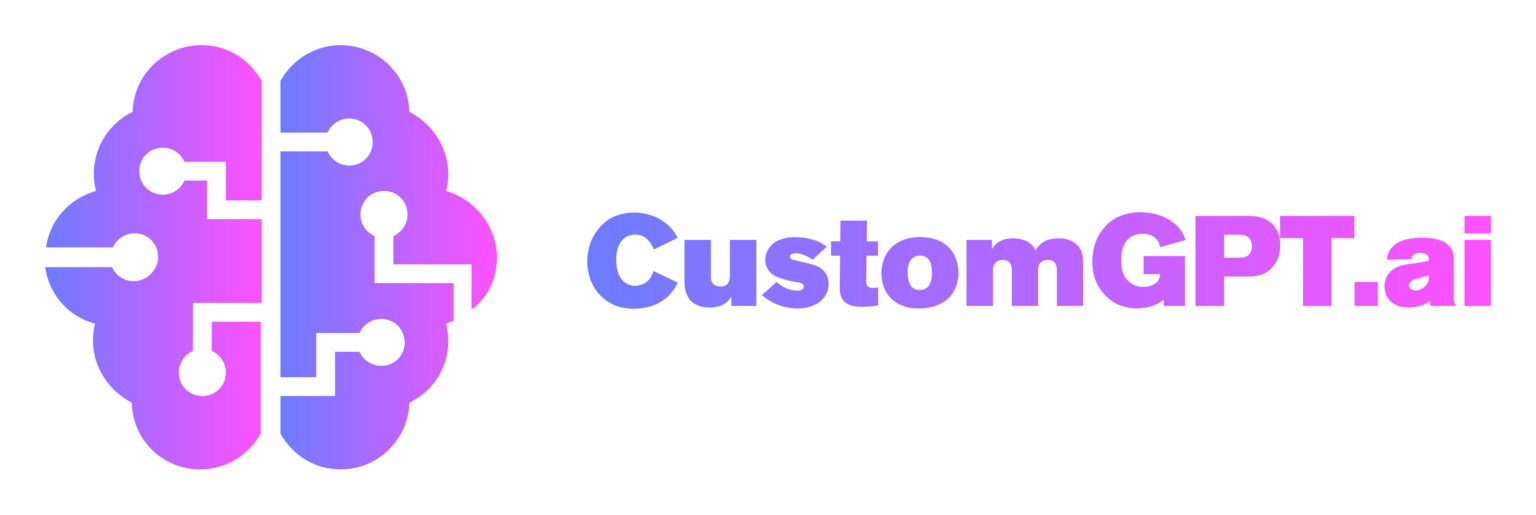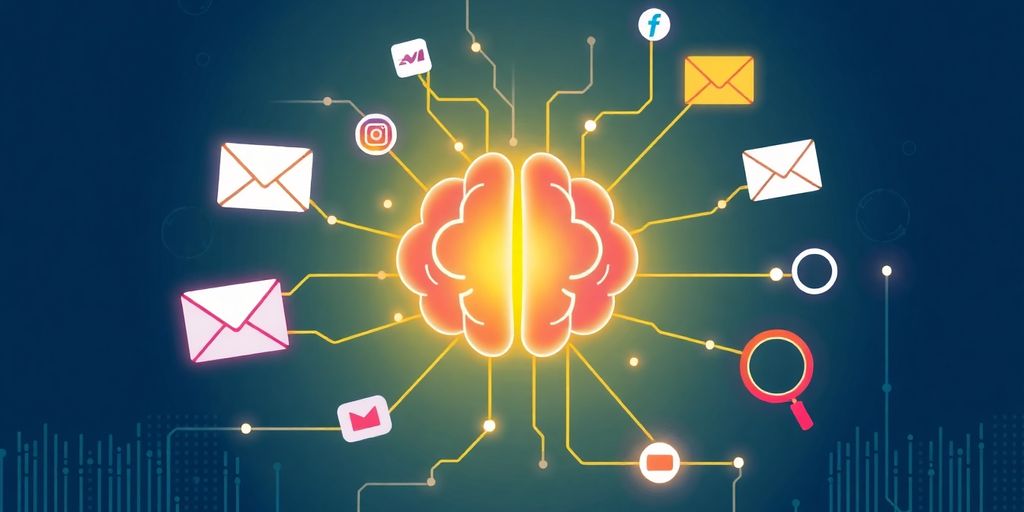7 AI Strategies That Increased Ecommerce Revenue by 250%
Discover 7 ecommerce AI strategies that boosted revenue by 250%. Learn about brand awareness, email lists, and more!
So, you want to make more money with your online store, right? Who doesn't! It turns out, using smart tech, specifically ecommerce AI, can really make a difference. We're talking about strategies that have helped businesses boost their sales by a massive 250%. It's not magic, just good planning and using the right tools. Let's look at how some companies are doing it.
Key Takeaways
- Using ecommerce AI can significantly grow your online business.
- Building a strong brand and connecting with customers helps a lot.
- Email lists are still super important for getting sales.
- Making sure customers are happy keeps them coming back.
- Knowing what your competitors are doing can give you an edge.
1. Brand Awareness
Okay, so you want to boost your ecommerce revenue? Let's talk about something super important: brand awareness. You can have the best products, the slickest website, and the most amazing deals, but if nobody knows you exist, you're sunk.
Brand awareness is the degree to which customers are familiar with and recognize your brand. It's about getting your name out there, making a memorable impression, and building trust with potential customers. It's not just about shouting your name from the rooftops; it's about crafting a consistent and compelling message that influences e-commerce consumers' purchasing intentions. Think of it as laying the foundation for all your other marketing efforts. If people don't know you, they can't buy from you, right?
Building brand awareness isn't a one-time thing. It's an ongoing process that requires consistent effort and a willingness to adapt to changing market trends. It's about creating a lasting impression that resonates with your target audience and keeps them coming back for more.

SocialBee is a comprehensive social media management platform designed to help businesses and content creators build and strengthen brand awareness by making their online presence more consistent, engaging, and data-driven.
Here are a few things to keep in mind:
- Consistency is key: Use the same branding across all platforms.
- Know your audience: Tailor your message to resonate with them.
- Be authentic: People can spot a fake a mile away.
2. Email List
Email marketing is still a powerhouse, even with all the new shiny tools out there. It's direct, personal, and when done right, super effective. The key is to build a quality list and use it smartly. Think beyond just blasting out promotions; focus on building relationships.
An engaged email list is like having a direct line to your most interested customers. It's a valuable asset that, when nurtured correctly, can drive significant revenue.
Here's how AI can help you grow and use your email list more effectively:
- Segmentation: AI can analyze your subscriber data to create detailed segments based on behavior, purchase history, and demographics. This means you can send more targeted and relevant emails. For example, you can use AI email marketing to send personalized product recommendations.
- Personalization: Forget generic greetings. AI can help you personalize every aspect of your emails, from subject lines to content, making them more engaging and less likely to end up in the spam folder.
- Automation: Set up automated email sequences triggered by specific actions, like signing up for a newsletter or abandoning a cart. AI can optimize these sequences over time based on performance data.

ActiveCampaign is a leading marketing automation and email platform recognized for its sophisticated email list management, bolstered by AI-powered segmentation, personalization, and automation features.
Think about using intent-based promotions. Instead of sending the same discount to everyone, AI can analyze customer behavior to determine the right offer for each individual. This could mean offering free shipping to some, a percentage discount to others, or even a free gift with purchase. It's all about making the offer relevant and appealing.
Here's a simple example of how AI-powered email segmentation could work:
By using AI to segment and personalize your emails, you can significantly improve your open rates, click-through rates, and ultimately, your revenue. It's about working smarter, not harder, and letting AI handle the heavy lifting.
3. Product-Led Growth

Product-Led Growth (PLG) is all about letting your product do the heavy lifting. Instead of relying solely on sales and marketing, you make the product itself the main driver of customer acquisition, activation, and retention. Think of it as turning your product into a salesperson that works 24/7.
The core idea is that users experience the value of your product firsthand before they commit to a purchase. This approach can be super effective, especially in the world of e-commerce, where customers are increasingly looking for immediate gratification and tangible results. It's about showing, not just telling.
Here's a few things to consider:
- Freemium Models: Offer a basic version of your product for free, enticing users to upgrade for more features. This gives them a taste of what you offer without any upfront commitment.
- Free Trials: Provide a full-featured version of your product for a limited time. This allows users to explore all the benefits and see how it fits into their workflow.
- Easy Onboarding: Make it incredibly simple for new users to get started and experience value quickly. Confusing interfaces and complicated setups are a major turn-off.
PLG isn't just about giving stuff away for free. It's about designing your product in a way that naturally attracts, engages, and converts users. It requires a deep understanding of your target audience and their needs, as well as a commitment to continuous improvement and iteration.
To make AI driven ecommerce growth work, you need to focus on creating a product that is intuitive, easy to use, and delivers immediate value. It's about building a product that sells itself.
4. Customer Success
Customer success is more than just solving problems; it's about building lasting relationships. It's about making sure your customers not only use your product but also love using it. When customers are happy, they stick around, and they tell their friends. That's how you turn users into advocates.
Think of customer success as an investment, not an expense. Happy customers are your best marketing tool.
Here's how AI can help:
- Personalized Support: AI can analyze customer data to understand individual needs and preferences, allowing for tailored support experiences. This means faster resolutions and happier customers. AI customer experience tools can provide 24/7 support.
- Predictive Issue Resolution: AI can identify potential problems before they escalate, giving you a chance to proactively address them. This reduces churn and improves customer satisfaction.
- Improved Onboarding: AI-powered tools can guide new users through the onboarding process, ensuring they quickly understand the value of your product. This leads to higher adoption rates and long-term engagement.

Watermelon is an AI-powered customer support platform that leverages advanced chatbots and data-driven tools to deliver personalized support, enable predictive issue resolution, and streamline customer onboarding for businesses.
The goal is to make every customer feel valued and supported. This is how you build a loyal customer base and drive sustainable growth.
5. Affiliate Marketing
Affiliate marketing can be a goldmine, but it's often overlooked. It's all about partnering with other businesses or influencers to promote your products. The key is to make sure you're tracking everything properly, and that's where AI for online retail comes in.
AI can help you identify the best affiliates, track their performance, and optimize your campaigns for maximum ROI.
Here's how you can use AI to boost your affiliate marketing efforts:
- Affiliate Discovery: AI can analyze your competitors and identify potential affiliates already promoting similar products. Instead of cold outreach, you get a list of warm leads.
- Performance Tracking: AI-powered platforms can track affiliate performance in real-time, giving you insights into which affiliates are driving the most ecommerce revenue optimization with AI.
- Content Optimization: AI can analyze affiliate content and suggest improvements to increase conversions.
Implementing AI in your affiliate marketing strategy isn't just about automation; it's about making smarter decisions based on data. It's about finding the right partners, tracking their performance accurately, and optimizing your campaigns to get the best possible results.
AI can help you find the best affiliate marketing tools to boost your campaign effectiveness.

CustomGPT stands out as a premier AI tool tailored for affiliate marketers seeking precision and security. Renowned for its exceptional accuracy and robust security measures, CustomGPT offers a no-code platform that empowers small and medium-sized businesses (SMBs) to obtain instant, fact-based answers from both internal and external documentation.

Hyros is an advanced ad tracking and attribution platform designed to give businesses precise insights into the performance of their digital advertising campaigns. Its focus on performance tracking is powered by robust AI, multi-touch attribution, and seamless integrations that help marketers optimize ad spend, maximize ROI, and understand the full customer journey. By leveraging these capabilities, Hyros empowers businesses to make data-driven decisions, optimize their marketing strategies, and ultimately drive revenue growth.

MarketMuse is an AI-powered content optimization platform that helps content creators, marketers, and SEO professionals improve the quality, relevance, and search performance of their content. Its suite of tools uses advanced machine learning to provide actionable recommendations, close content gaps, and ensure superior topical coverage.
6. Digital Marketing

Digital marketing is where artificial intelligence ecommerce solutions really shine. It's not just about throwing money at ads; it's about making every dollar count. I've seen so many businesses waste their ad budgets on campaigns that are poorly targeted or have messaging that doesn't resonate. AI can help you avoid those pitfalls.
AI can analyze customer data to create highly targeted ad campaigns, personalize website content, and even predict what products a customer is likely to buy. It's like having a crystal ball, but instead of vague prophecies, you get actionable insights.
Think about it: AI can sift through mountains of data to identify patterns and trends that would take humans weeks or months to uncover. This allows you to optimize your marketing efforts in real-time, ensuring that you're always putting your best foot forward.
Here's how AI can boost your digital marketing game:
- Personalized Ads: AI can tailor ads to individual customers based on their browsing history, purchase behavior, and demographics. This means more relevant ads and higher click-through rates.
- Chatbots: AI-powered chatbots can provide instant customer support, answer questions, and even guide customers through the purchase process. This frees up your human staff to focus on more complex issues.
- Predictive Analytics: AI can analyze past sales data to predict future demand, allowing you to optimize your inventory and avoid stockouts. This is a game-changer for managing your supply chain.

AdScale is an AI-powered advertising platform designed for ecommerce businesses, enabling automated and highly-optimized campaigns across major channels like Facebook Ads, Google Ads, Instagram, SMS, and email. Its unified dashboard lets merchants manage and optimize campaigns for acquisition, retargeting, and customer retention.

Tidio is an all-in-one customer service platform with a strong focus on chatbots to automate and enhance customer interactions, particularly suited for small and medium-sized businesses. Its chatbot features are centered around making customer support more efficient and accessible while also driving sales and lead generation.

SellerBoard is an analytics platform designed for ecommerce sellers, especially those on Amazon, offering features that support predictive analytics to optimize business performance and decision-making.
Ultimately, the goal is to increase online sales using AI. It's about using technology to work smarter, not harder. By embracing AI, you can transform your digital marketing efforts and drive significant revenue growth.
7. Competitive Analysis
Okay, so you've got your brand humming, your email list growing, and customers are happy. But what are your rivals up to? Ignoring them is like driving with your eyes closed. You need to know what they're doing, how they're doing it, and where they're succeeding (or failing).
Competitive analysis isn't just about copying what others do. It's about understanding the landscape, identifying opportunities, and finding ways to stand out. It's about making sure you're not left behind. It's about using their moves to inform your own strategy.
Here's how AI can help you keep an eye on the competition and boost your revenue.
See Similarweb below.
Identifying Key Competitors
First things first, who are your real competitors? It's not always who you think. AI can crawl the web, analyze keywords, and identify companies that are directly competing for your customers' attention. It can even find emerging competitors you might not be aware of yet. This is way beyond just Googling a few terms. Think of it as having a super-powered research assistant that never sleeps. Knowing your rivals is relatively easy, but knowing them well is the key. You can use this to educate your advertising technique.

Similarweb is an industry-leading competitive analysis and digital intelligence platform that excels at helping businesses identify key competitors and understand their online strategies.
Monitoring Pricing and Promotions
AI can track your competitors' pricing in real-time. It can also monitor their promotions, discounts, and special offers. This allows you to adjust your own pricing strategy to stay competitive and maximize profits. No more guessing games – you'll have hard data to back up your decisions. Imagine knowing the instant a competitor drops their price on a key product. You can react immediately and protect your market share.

Octoparse is a powerful web scraping tool widely used by businesses to monitor pricing and promotions across competitor websites and marketplaces, providing real-time, actionable insights for ecommerce strategy.
Analyzing Marketing Strategies
What kind of ads are your competitors running? What keywords are they targeting? What social media platforms are they using? AI can analyze their marketing efforts and provide insights into what's working for them (and what's not). This helps you refine your own marketing campaigns and avoid wasting money on strategies that aren't effective. Think of it as spying on their marketing team, but in a totally ethical (and automated) way. You can analyze their landing pages, like those of EdTech companies, to understand their methods for increasing conversion rates.

Inconosquare is a leading social media analytics and management platform that specializes in providing deep insights for marketers seeking to analyze and optimize their marketing strategies across channels like Instagram, Facebook, TikTok, LinkedIn, and Pinterest. These insights enable marketers to refine their content strategy, optimize ad campaigns, and ultimately drive better engagement and ROI.
Understanding Customer Sentiment
What are customers saying about your competitors? AI can analyze online reviews, social media posts, and forum discussions to gauge customer sentiment. This provides valuable insights into your competitors' strengths and weaknesses. You can then use this information to improve your own products, services, and customer experience. If customers are complaining about a competitor's slow shipping, you can highlight your fast shipping as a key differentiator.
Competitive analysis, powered by AI, isn't just about reacting to what your competitors are doing. It's about anticipating their moves, identifying opportunities, and developing a winning strategy. It's about using data to make smarter decisions and stay one step ahead of the game.

Relevance AI is an advanced AI platform specializing in understanding customer sentiment to help businesses interpret, anticipate, and act on customer emotions at scale.
Improving Product Search
AI-powered search tools can analyze competitor websites to understand how they structure their product information and what keywords they use. This can help you optimize your own product listings and improve your website's search functionality. A good ecommerce smart search should have a voice search option.

Doofinder is an AI-powered search and discovery platform for ecommerce sites, specifically designed to improve product search and drive conversion by making it easier for shoppers to find the right products quickly and effortlessly.
Spotting Trends and Opportunities
AI can analyze vast amounts of data to identify emerging trends and opportunities in your industry. This allows you to stay ahead of the curve and capitalize on new market segments before your competitors do. Think of it as having a crystal ball that shows you where the market is headed. This is especially useful in a rapidly changing landscape. In 2011, there were 150 players in the marketing industry, but by 2020, that number had skyrocketed to 8,000.

Similarweb is an AI-driven digital intelligence platform that empowers businesses to spot trends and identify opportunities by delivering in-depth insights into web and market behaviors across industries.
Automating Reporting
Finally, AI can automate the process of creating competitive analysis reports. This saves you time and effort, and ensures that you always have access to the latest insights. No more manually gathering data and creating spreadsheets – AI can do it all for you. This frees up your time to focus on implementing your strategy and driving revenue. You can also use AI for customer segmentation to improve profitability.

Zoho Analytics is a comprehensive business intelligence (BI) and data analytics platform designed to help organizations analyze data, visualize insights, and make informed, data-driven decisions. It provides robust tools for integrating, preparing, analyzing, visualizing, and sharing data—all in a unified environment. It excels at automating reporting through advanced, user-friendly features designed to save time and simplify data analysis for businesses of all sizes.
Conclusion
So, there you have it. Using AI in your online store isn't just some fancy idea anymore; it's a real way to make more money. We've seen how these seven ideas can seriously change things, helping businesses grow their sales by a lot. It's not about being super complicated, but about using smart tools to do things better. If you start putting these AI ideas into practice, you'll probably see your own sales go up. It's worth trying out to see what works best for your business. Good luck!
Frequently Asked Questions
How does AI actually help e-commerce businesses?
AI helps e-commerce stores by making things run smoother and smarter. It can suggest products to customers, make ads better, help with customer service, and even figure out what people might want to buy next. This helps businesses make more money and keep customers happy.
Do I need to be a tech wizard to use AI in my online store?
You don't need to be a computer expert! Many AI tools for businesses are made to be easy to use. They often have simple setups and clear instructions. You can start with basic tools and learn more as you go.
Is using AI for my e-commerce business expensive?
It depends on what you need. Some basic AI tools are free or very cheap. More advanced tools can cost more, but they often pay for themselves by helping you earn more money. It's smart to start small and see what works best for your business.
What kind of results can I expect from using AI?
AI can help your business grow a lot! It can bring in new customers, get current customers to buy more, and even save you money by making your work more efficient. The goal is to boost your sales and make your business stronger.
Can small e-commerce businesses use AI too?
Absolutely! AI is great for businesses of all sizes, even small ones. There are many simple and affordable AI tools that can help small businesses compete with bigger companies and reach more customers.
How do I even begin using AI for my online store?
The best way to start is to pick one area where you think AI could help the most. Maybe it's improving your product suggestions, or making your customer service faster. Once you see success there, you can slowly add more AI tools to other parts of your business.
Author
Trending Post
Get
Inspiration.
@artificial_intelligence_bloom








